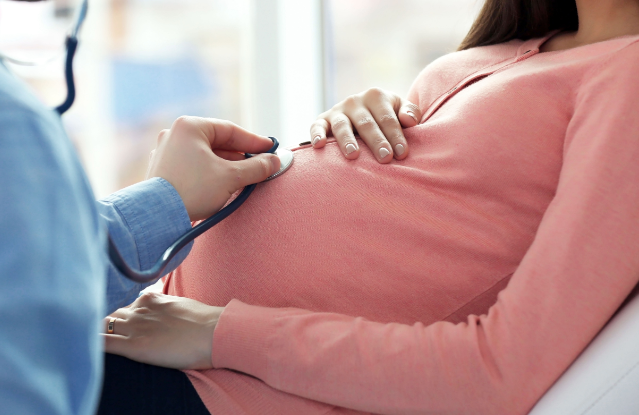First-time Mums
Having a first child can be a daunting time for a new mum, and the experience will be unique for every woman. While no amount of preparation will leave you feeling completely confident as you become a mum for the first time, internet and a range of resources are available to advise and prepare you for what’s to come. Learn about your health during pregnancy and know what to expect during birth and the postnatal period
The attached brochure which can be downloaded and lept on your device or printed, provides information on the maternity services available in North Central London
Your health in pregnancy
A healthy diet is an important part of a healthy lifestyle at any time, but is especially vital if you’re pregnant or planning a pregnancy. Eating healthily during pregnancy will help your baby to develop and grow. You will probably find that you are hungrier than usual, but you don’t need to ‘eat for two’ – even if you are expecting twins or triplets.
Experts are still unsure exactly how much – if any – alcohol is completely safe for you to have while you’re pregnant, so the safest approach is not to drink at all while you’re expecting. Drinking in pregnancy can lead to long-term harm to the baby, with the more you drink, the greater the risk. Stopping smoking will help both you and your baby immediately. Every cigarette you smoke contains over 4,000 chemicals, so smoking when you are pregnant harms your unborn baby.
Before taking any medicine when you’re pregnant, including painkillers. check with your pharmacist, midwife or GP that it’s suitable. Most medicines taken during pregnancy cross the placenta and reach the baby. When you’re pregnant or there’s a chance you might get pregnant, you should take a folic acid supplement. It is recommended that you take 400 micrograms each day from before you’re pregnant until you’re 12 weeks pregnant. Folic acid reduces the risk of problems in the baby’s development in the early weeks of pregnancy.
What to expect
You should see a midwife or GP as soon as you find out you’re pregnant. This is so they can organise your NHS pregnancy care (also called antenatal care). The NHS offers all pregnant women in England:
- 10 pregnancy appointments (seven if you’ve had a child before) to check the health and development of you and your baby)
- screening tests to find out the chance of your baby having certain conditions, such as Down’s syndrome
- blood tests to check for syphilis, HIV and hepatitis B
- screening for inherited blood disorders (sickle cell and thalassaemia)
Knowing what to expect and what you need to do in each of your pregnancy trimesters is important too.
- As soon as you know you are pregnant, see your GP or self-refer to the provider of your choice. You should receive your booking appointment before ten weeks.
- Consider where you want to have your baby – at a midwife-led unit, at home or in hospital.
- Ask your midwife for a maternity exemption certificate to benefit from free prescriptions and NHS dental treatment.
- You will be offered routine blood tests and an ultrasound scan at around 12 weeks (also known as the dating scan).
- There are foods you should avoid when you are pregnant – visit www.nhs.uk for the latest guidance.
- Always check with your GP, pharmacist or midwife before you take any medicine.
- Visit www.nhs.uk/start4life for tips on keeping yourself well during pregnancy.
- Ask your midwife for a MAT B1 certificate (after 20 weeks); this confirms your pregnancy for your employer.
- Book your antenatal classes – your midwife will give you details.
- If you are out of work or on a low-income, visit www.gov.uk to see what benefits you are entitled to.
- You will be offered routine blood tests and an ultrasound scan (around 20 weeks) to check your baby’s growth.
- You will also have the option to find out the gender of your baby, should you wish to.
- You will be offered a whooping cough vacination, seasonal flu vacination, oral glucose tolerance test (for women at risk of gestational diabetes) and screening for HIV, syphilis and hepatitis B.
- Prepare your hospital bag and your birth plan – you will get the information you need from your antenatal classes or midwife.
- Check out what you will need for feeding your baby and prepare yourself now.
- You will be offered screening tests for your baby and routine blood tests for you; you may also be offered a scan.
- Visit www.nhs.uk to get advice on common health problems during pregnancy.
Labour and birth
A birth plan is a record of what you would like to happen during your labour and and after the birth. You don’t have to create a birth plan but, if you would like one, your midwife will be able to help. Discussing a birth plan with your midwife gives you the chance to ask questions and find out more about what happens in labour. Your birth plan is personal to you. It depends on what you want, your medical history, your circumstances, and what is available at your maternity service. You need to be flexible and prepared to do things differently from your birth plan if complications arise with you or your baby, or if facilities such as a birth pool aren’t available. The maternity team will tell you what they advise in your particular circumstances. Don’t hesitate to ask questions if you need to.

